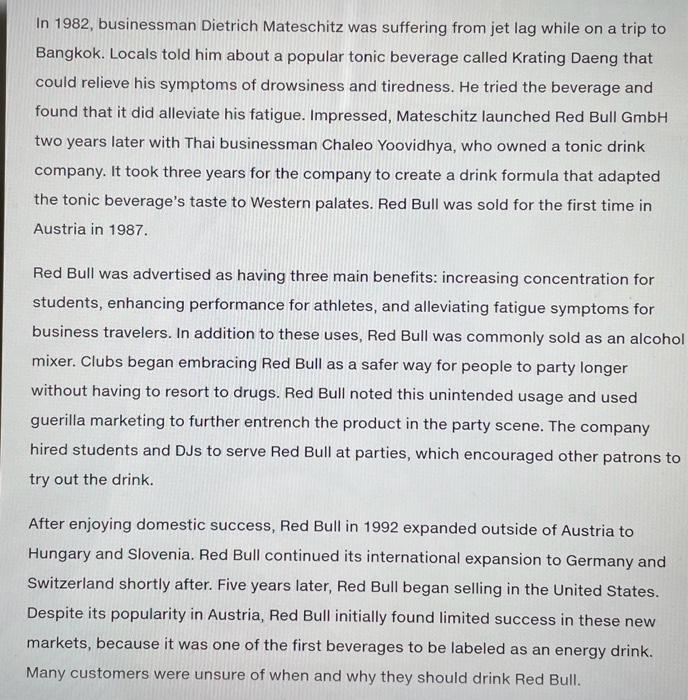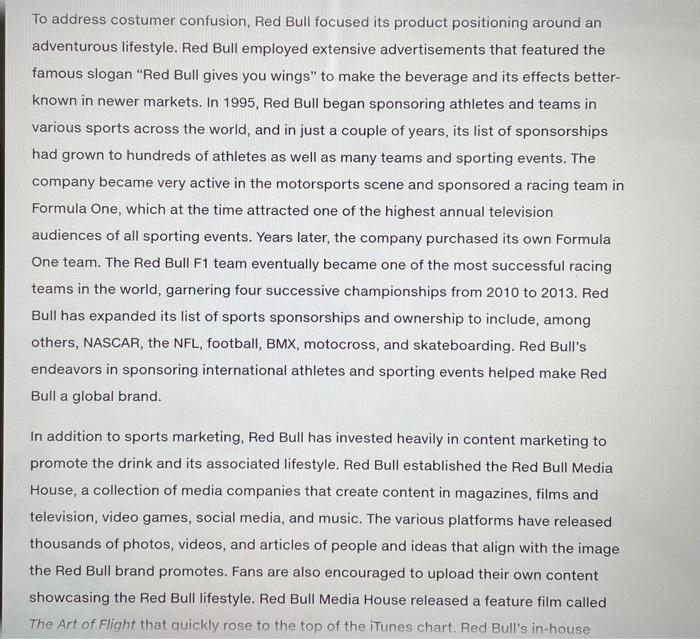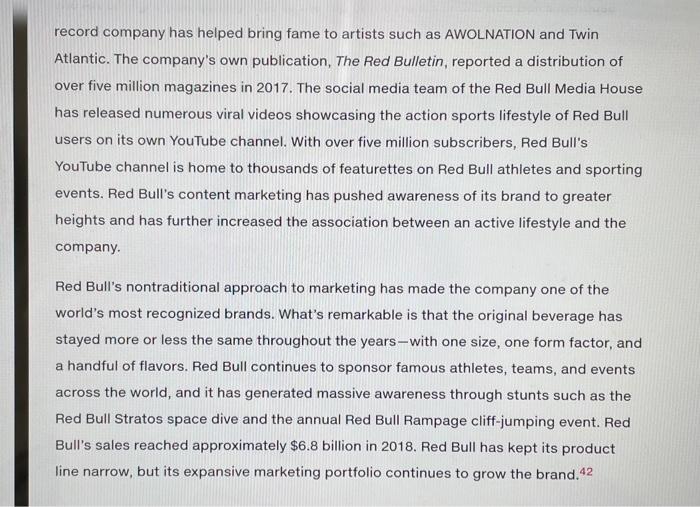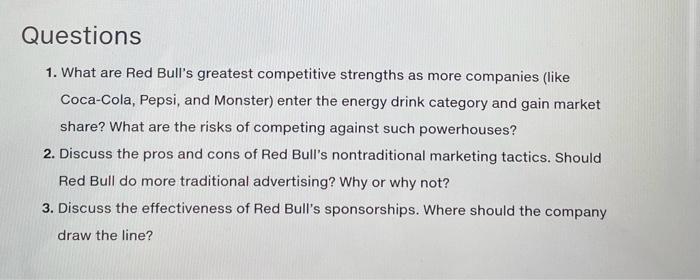In 1982, businessman Dietrich Mateschitz was suffering from jet lag while on a trip to Bangkok. Locals told him about a popular tonic beverage called Krating Daeng that could relieve his symptoms of drowsiness and tiredness. He tried the beverage and found that it did alleviate his fatigue. Impressed, Mateschitz launched Red Bull GmbH two years later with Thai businessman Chaleo Yoovidhya, who owned a tonic drink company. It took three years for the company to create a drink formula that adapted the tonic beverage's taste to Western palates. Red Bull was sold for the first time in Austria in 1987. Red Bull was advertised as having three main benefits: increasing concentration for students, enhancing performance for athletes, and alleviating fatigue symptoms for business travelers. In addition to these uses, Red Bull was commonly sold as an alcoho mixer. Clubs began embracing Red Bull as a safer way for people to party longer without having to resort to drugs. Red Bull noted this unintended usage and used guerilla marketing to further entrench the product in the party scene. The company hired students and DJs to serve Red Bull at parties, which encouraged other patrons to try out the drink. After enjoying domestic success, Red Bull in 1992 expanded outside of Austria to Hungary and Slovenia. Red Bull continued its international expansion to Germany and Switzerland shortly after. Five years later, Red Bull began selling in the United States. Despite its popularity in Austria, Red Bull initially found limited success in these new markets, because it was one of the first beverages to be labeled as an energy drink. Many customers were unsure of when and why they should drink Red Bull. To address costumer confusion, Red Bull focused its product positioning around an adventurous lifestyle. Red Bull employed extensive advertisements that featured the famous slogan "Red Bull gives you wings" to make the beverage and its effects betterknown in newer markets. In 1995, Red Bull began sponsoring athletes and teams in various sports across the world, and in just a couple of years, its list of sponsorships had grown to hundreds of athletes as well as many teams and sporting events. The company became very active in the motorsports scene and sponsored a racing team in Formula One, which at the time attracted one of the highest annual television audiences of all sporting events. Years later, the company purchased its own Formula One team. The Red Bull F1 team eventually became one of the most successful racing teams in the world, garnering four successive championships from 2010 to 2013. Red Bull has expanded its list of sports sponsorships and ownership to include, among others, NASCAR, the NFL, football, BMX, motocross, and skateboarding. Red Bull's endeavors in sponsoring international athletes and sporting events helped make Red Bull a global brand. In addition to sports marketing, Red Bull has invested heavily in content marketing to promote the drink and its associated lifestyle. Red Bull established the Red Bull Media House, a collection of media companies that create content in magazines, films and television, video games, social media, and music. The various platforms have released thousands of photos, videos, and articles of people and ideas that align with the image the Red Bull brand promotes. Fans are also encouraged to upload their own content showcasing the Red Bull lifestyle. Red Bull Media House released a feature film called The Art of Flight that quickly rose to the top of the iTunes chart. Red Bull's in-house record company has helped bring fame to artists such as AWOLNATION and Twin Atlantic. The company's own publication, The Red Bulletin, reported a distribution of over five million magazines in 2017. The social media team of the Red Bull Media House has released numerous viral videos showcasing the action sports lifestyle of Red Bull users on its own YouTube channel. With over five million subscribers, Red Bull's YouTube channel is home to thousands of featurettes on Red Bull athletes and sporting events. Red Bull's content marketing has pushed awareness of its brand to greater heights and has further increased the association between an active lifestyle and the company. Red Bull's nontraditional approach to marketing has made the company one of the world's most recognized brands. What's remarkable is that the original beverage has stayed more or less the same throughout the years - with one size, one form factor, and a handful of flavors. Red Bull continues to sponsor famous athletes, teams, and events across the world, and it has generated massive awareness through stunts such as the Red Bull Stratos space dive and the annual Red Bull Rampage cliff-jumping event. Red Bull's sales reached approximately $6.8 billion in 2018 . Red Bull has kept its product line narrow, but its expansive marketing portfolio continues to grow the brand. 42 Questions 1. What are Red Bull's greatest competitive strengths as more companies (like Coca-Cola, Pepsi, and Monster) enter the energy drink category and gain market share? What are the risks of competing against such powerhouses? 2. Discuss the pros and cons of Red Bull's nontraditional marketing tactics. Should Red Bull do more traditional advertising? Why or why not? 3. Discuss the effectiveness of Red Bull's sponsorships. Where should the company draw the line










